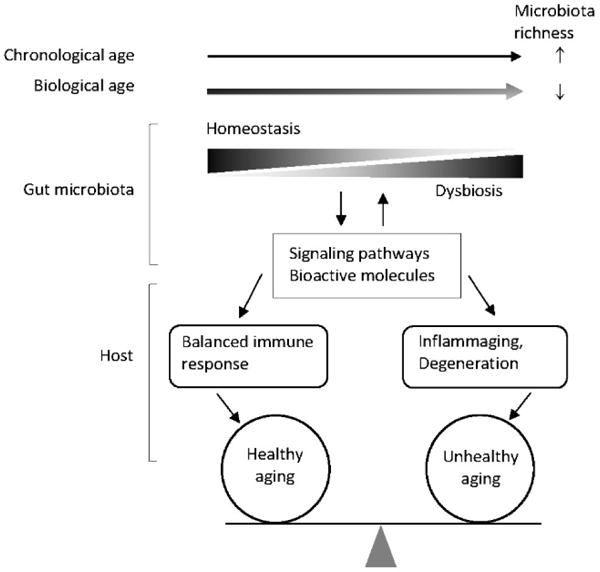Fig. 1.

Biological age-dependent gut dysbiosis and unhealthy aging. Biology of aging is better approached using a functional measure of age. An increase in chronological age (in the direction of the arrow) is associated with an increase in phylogenetic richness of the gut microbiota, but an increase in biological age shows an inverse association. As biological age increases, homeostasis of the gut microbiota with the host decreases, while dysbiosis increases. The dysbiotic changes are communicated to the host through various signaling pathways and bioactive molecules, which either delays or promotes proinflammatory immune responses and age-related degenerative pathologies.
